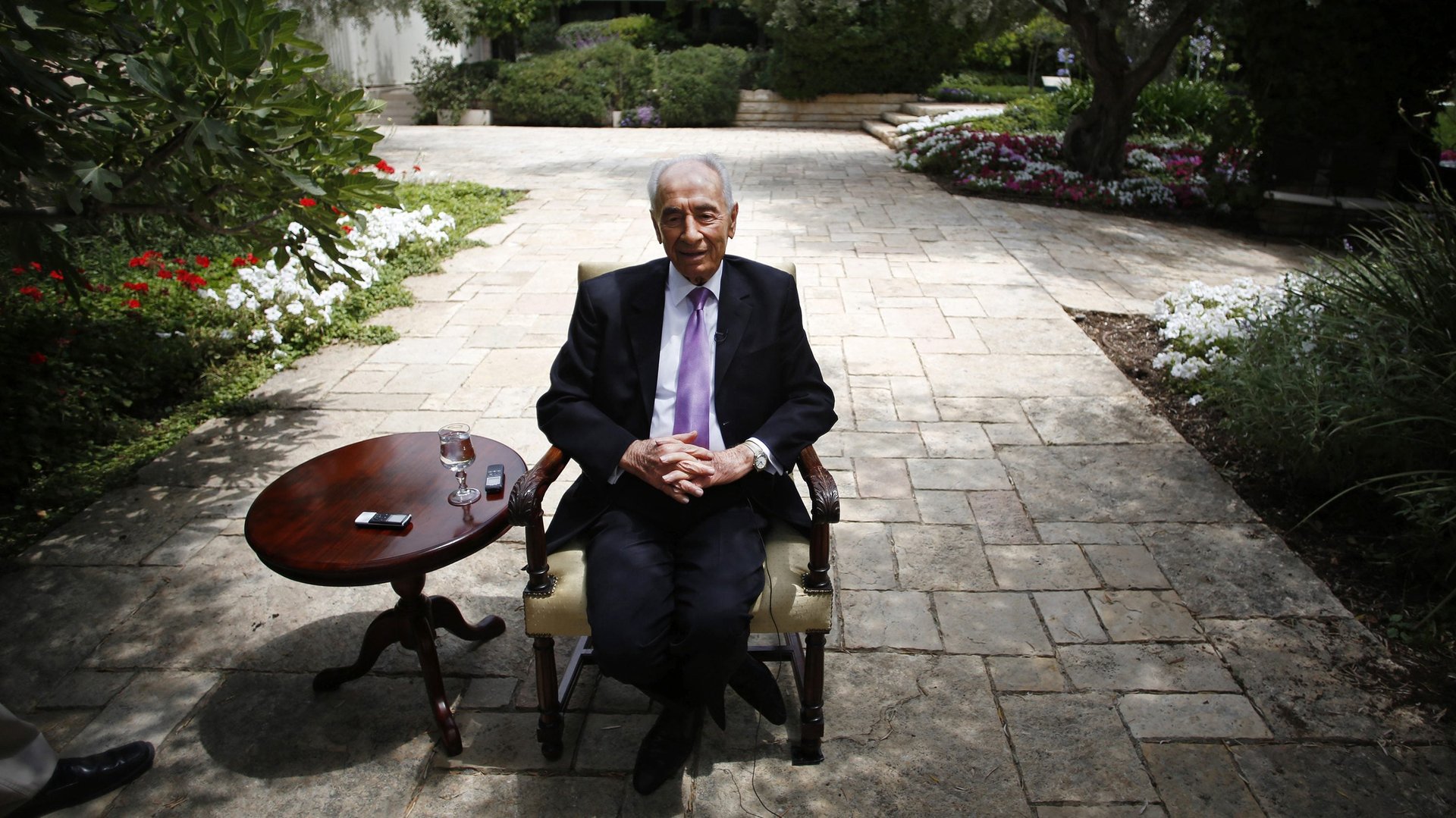With the death of Shimon Peres, what Israel lost was not its moral compass so much as the fiction of one
They eulogized him as a “warrior for peace,” but Shimon Peres spent much of his career as one of Israel’s chief hawks. He built up the country’s defense industry, created its nuclear program, and for years championed the settlements in the occupied territories—the settlements that, ironically, are now one of the biggest obstacles to the peace process for which he shared the Nobel prize.


They eulogized him as a “warrior for peace,” but Shimon Peres spent much of his career as one of Israel’s chief hawks. He built up the country’s defense industry, created its nuclear program, and for years championed the settlements in the occupied territories—the settlements that, ironically, are now one of the biggest obstacles to the peace process for which he shared the Nobel prize.
His rebranding as a dove is thanks in no small part to his country’s rightward shift since the peace process collapsed. It’s also thanks to the elder-statesman patina that settled on him as his political rivals died off. If in his prime he was Israel’s Hillary Clinton—competent, experienced, but not much liked—by the time he assumed the ceremonial role of president in 2007, he was its Nelson Mandela, a grandfatherly embodiment of the country’s best, most noble self.
This is what the world leaders who flocked to his funeral were mourning—not only Peres the man, with a man’s flaws and complications, but Peres the invocation of the Israeli ideal. He was the last of Israel’s demigods, those who oversaw the state-building project from its very beginning; a link to a more unpretentious, more egalitarian, and more idealist country, a place that actually believed the Palestinians were grateful to it for occupying them in 1967—and in which, for a brief moment after it took over the role from Egypt and Jordan, that was actually true.
As president, Peres no longer really had the influence to serve as Israel’s moral compass. But his presence enabled the fiction that it had one. This is what is being mourned now, too: the loss, to Israelis and their allies, of the last figurehead of the “light unto the nations” that they once hoped Israel would become.
This was published in the weekend edition of the Quartz Daily Brief. Sign up for our newsletters, tailored for morning delivery in Asia, Europe and Africa, or the Americas.